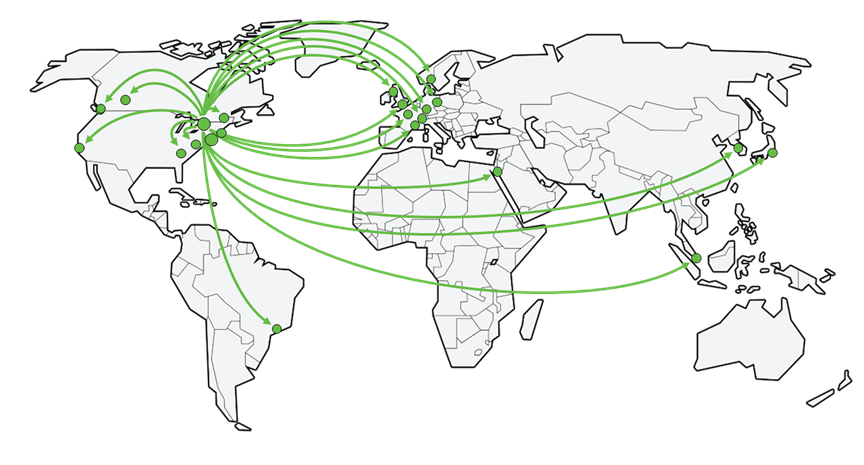
Large-scale pancreatic cancer study distinguishes primary from metastatic tumours, uncovering new genomic biomarkers that could help guide treatment selection
Over the next decade, pancreatic ductal adenocarcinoma (PDAC) – the most common type of pancreatic cancer – is projected to become the second leading cause of all cancer mortality. A better understanding of how PDAC changes when it metastasizes – or spreads from the pancreas to other organs – may help researchers find ways to treat the disease more effectively.
A study by OICR researchers and collaborators, published today in Cancer Cell, showed that the cells in advanced pancreatic tumours grow – or cycle – faster than those in early tumours, revealing one of the key reasons that the disease can advance so quickly. OICR’s Pancreatic Cancer Translational Research Initiative, PanCuRx, investigated the whole genomes and transcriptomes of more than 300 PDAC tumours, contrasting cells from primary tumours and cells from metastatic tumours. This distinction may help clinicians advise patients about treatment, whether it be surgery, chemotherapy or radiation.
“Often, a patient’s primary pancreatic cancer recurs after surgery and chemotherapy, and there is limited knowledge of metastases to guide the next course of action. In less common ‘metachronous’ cases, treatment depends on whether the second tumour is new, or if it grew from remnants of a previous tumour,” says Dr. Ashton Connor, chief resident in the General Surgery training program at the University of Toronto and lead author of the study. “In this study, we explored differences between primary and metastatic tumours in the hopes of better understanding the mechanisms of cancer cell spread from the pancreas, and to ultimately inform their treatment.”
Over the last decade, PanCuRx has assembled the largest collection of genomic and transcriptomic data on primary and metastatic PDAC tumours. The initiative continues to collect samples through the COMPASS clinical trial today.
“There have been very few studies of advanced PDAC, so our rich dataset is very valuable to the future of pancreatic cancer research,” says Rob Denroche, bioinformatician, Project Leader of PanCuRx and co-author of the study. “Research groups from Germany, Brazil, Japan and across North America have been interested in the data that we’ve collected and we’re happy to enable their discoveries.”

Through COMPASS, PanCuRx will continue to build on these findings and test if cell progression could be used to inform treatment selection in the clinic.
“This work is foundational to our understanding of advanced pancreatic cancer,” says Dr. Steven Gallinger, PanCuRx Director and Head of the Hepatobiliary/Pancreatic Surgical Oncology Program at UHN and Mount Sinai Hospital. “We look forward to building on this understanding to better inform treatment selection for those with this terrible disease.”
